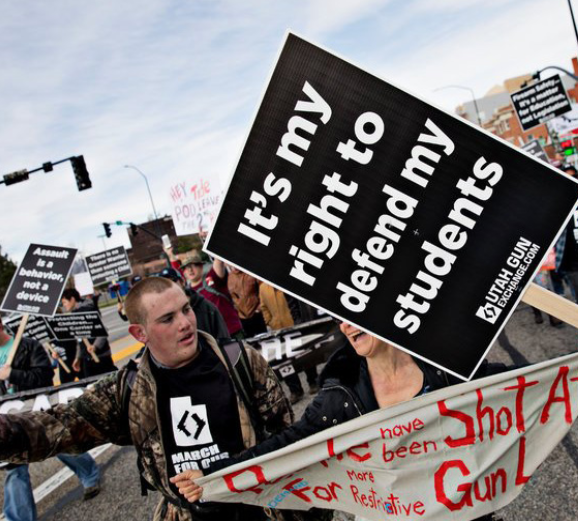Few issues in America today are as divisive as gun control. In the wake of tragedies such as the Parkland shooting, in which 19-year-old Nikolas Cruz killed fourteen former classmates and three adults at Marjory Stoneman Douglas High School in southeast Florida, many have called for stricter legislation surrounding firearms, and a select few have called for an outright repeal of the Second Amendment. While systemic change is necessary, repealing the amendment entirely would be a poor choice.
Repealing the Second Amendment would set a terrible precedent by adopting a consequentialist view of rights, or rather making it permissible to strip away rights if they were not deemed beneficial overall. This is a narrow-minded view of American institutions and rights. If it were determined that voices of political dissent were disrupting the national security interests of the federal government, would a repeal of the First Amendment be justified? Absolutely not. The Second Amendment is no different and repealing it would make repealing other amendments permissible for similar reasons.
Repealing the Second Amendment outright would also not be in the best interest of society, for it would not deter criminals. Conversely, it would allow criminal enterprise to flourish by further decentralizing the law. In Chicago, criminals cross state lines to obtain firearms while law-abiding citizens are left defenseless. No second amendment would create a patchwork of different rules across different states and cities. Criminals who want to purchase guns could exploit geography. The reality is that so many guns exist in America today that the supply most likely cannot be eradicated, and criminals have access to guns through the black market anyways. The only people left without firearms would be law followers who most need them for self-defense.
Finally, repealing the Second Amendment is not necessary to eradicate many of the problems surrounding gun ownership. Common sense gun control policy is constitutionally permissible within the status quo. Federal court systems, contrary to popular belief, have ruled that the Second Amendment is not a blanket protection that extends to all individuals. Additionally, the Supreme Court has ruled in favor of restricting gun ownership for certain individuals in cases such as U.S. v. Hayes and Voisine v. U.S.
Most tellingly, however, the Supreme Court has consistently declined the opportunity to nullify laws which advocate for tighter firearm regulations by refusing to hear second amendment cases and allowing restrictive lower court rulings to stand. Because of these decisions, enough flexibility exists under the current system to accommodate sufficient legislative change without abolishing the Second Amendment. Universal background checks, mandatory waiting periods, and age limitations are not unconstitutional proposals, and it is possible to have such policies without forfeiting the right to gun ownership.
The status quo as it exists right now is imperfect; however, repealing the Second Amendment would be a grave mistake. The government needs to effect lasting change without destroying this essential right.





